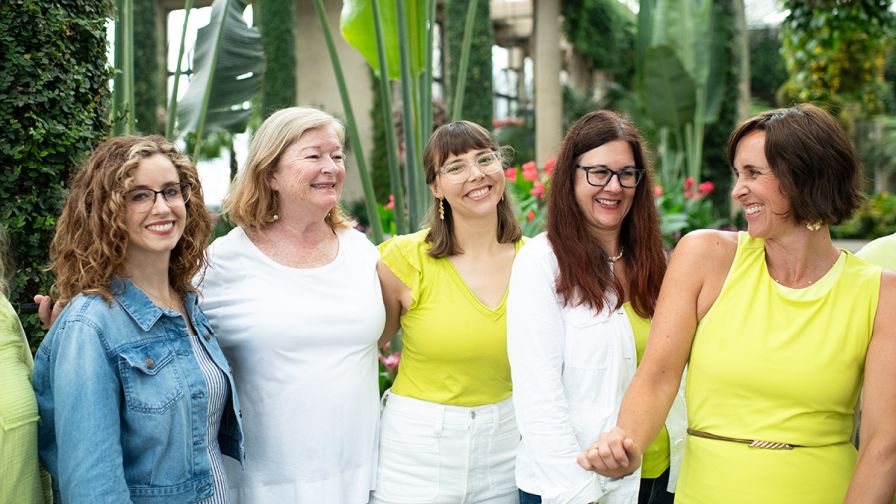Why Focusing on Youth in Hiring Can Hurt Your Organizational Health
 Do organizations consciously and/or subconsciously choose youth and inexperience over experience and wisdom, to our detriment and the detriment of the younger employees we onboard? Are we missing training, coaching, and reverse mentoring opportunities, which would lower turnover and benefit the entire organization? Is it time to rethink age in hiring, especially in the current candidate’s market, and get away from the misconceptions and perceived costs of hiring older workers and the focus on benefits?
Do organizations consciously and/or subconsciously choose youth and inexperience over experience and wisdom, to our detriment and the detriment of the younger employees we onboard? Are we missing training, coaching, and reverse mentoring opportunities, which would lower turnover and benefit the entire organization? Is it time to rethink age in hiring, especially in the current candidate’s market, and get away from the misconceptions and perceived costs of hiring older workers and the focus on benefits?
In Search of Experience and Wisdom
Most can agree that experience and wisdom are good things, but there are times that age and health can lead to poor performance. Conversely, lack of training and mentoring can impact the performance of younger employees, which increases turnover and impacts the future of your entire organization.
We recently placed a 61-year-old candidate into a horticultural company that couldn’t ignore the fact that she made the entire sales department better. Instead of age being a negative, this person’s depth of work, life experience, high energy, continual learning mindset, and experience as a mentor to professionals in horticulture became a major positive. She didn’t need training — she was going to become the trainer. The client saw her as a resource his Millennials could tap into and concerns over age and longevity in the position were overcome.
Too often as business leaders, we look for shiny and new over tried and true. The disdain many in the Baby Boomers and Gen Xers groups have for Millennials (and vice versa) is not a new phenomenon. Saying Millennials are more prone to leaving jobs and switching companies than previous generations is misleading. They leave jobs because they are young and new to the workforce — and there was little in the way of training investment and mentoring to keep them engaged.
According to a Pew Research study comparing Millennials to Gen Xers, the percentage of 18- to 35-year-old employees who stayed with their employers for 13 months or more was 63.4% for Millennials in 2016 and 59.9% for Gen Xers in 2000. The percentage of these same groups who had been with their employers for five years or more was 22% for Millennials in 2016 and 21.8% for Gen Xers in 2000.
Research confirms that younger workers are leaving your company because they don’t see the career path and opportunity they’re seeking. In a recent Udemy “Workplace Boredom Report,” 46% of employees are looking to leave their companies because of a lack of opportunity to learn new skills. This is when a more experienced counterpart can provide the training, skills, career/life guidance, coaching, and patience that can help them learn the position, understand their fit within the company, adapt to the culture, and see a future.
Do you have a mentoring program? There is a wealth of company, industry, and subject knowledge in older workers that Millennials can tap into and employers should value. Programs connecting younger and older workers have a high return on investment because of the impact on increasing retention rates, promotions, and employee satisfaction.
Rethinking Age in Hiring
Retirement is changing in America. Many are now working into their 70s and 80s. There is the concern that when they retire they may not have enough saved to live on. Most of our conversations with older horticultural professionals reflect that there is also a fear of having nothing to do when they retire.
Ageism, or discriminating against an employee based on someone’s age, continues to grow. According to AARP (formerly American Association of Retired Persons), three of every five older workers report having seen or experienced age discrimination. Age discrimination complaints brought to the U.S. Equal Employment Opportunity Commission have increased 26% in the last decade alone.
What about compensation? It’s true that an older employee would stand to make more than a younger employee brought in as a replacement. Expanded learning curves, lost productivity, and the fact that we are in the biggest candidate’s market in years could ultimately make hiring and/or retaining older workers a bargain. For the first time in decades, there are more job openings than unemployed Americans who can fill them.
Keeping and hiring older workers, and their experience and wisdom, will fill the talent void, help companies retain younger talent, reduce turnover, and be critical to the future success and growth of the organization. It is time for business leaders and hiring managers to shift their thinking and understand that age is not about decline — it is about growth: The growth that experience and wisdom can bring to your company today, and through mentoring, the growth it can bring tomorrow.









